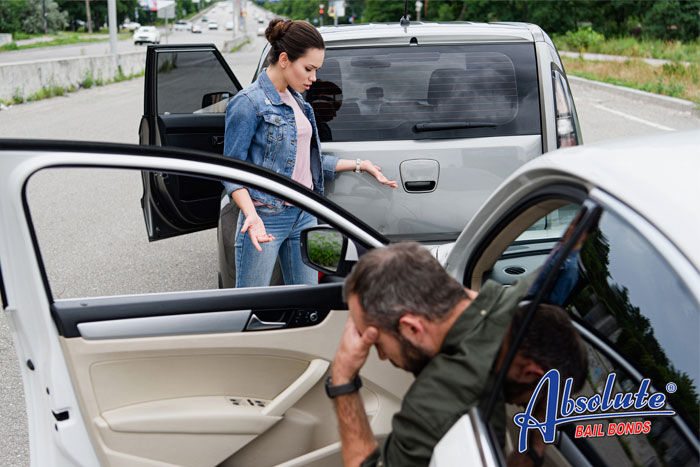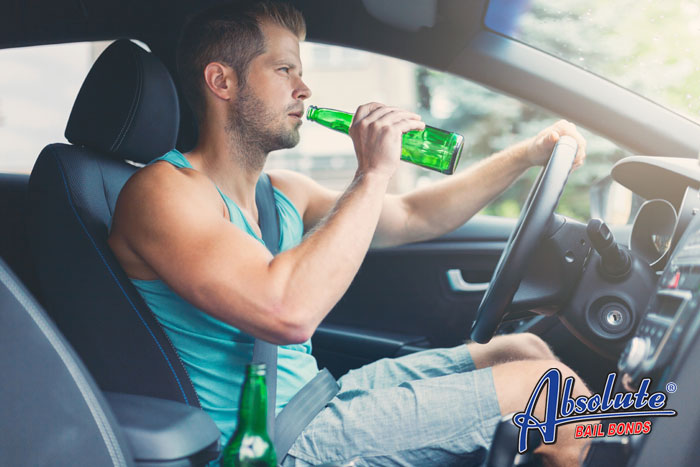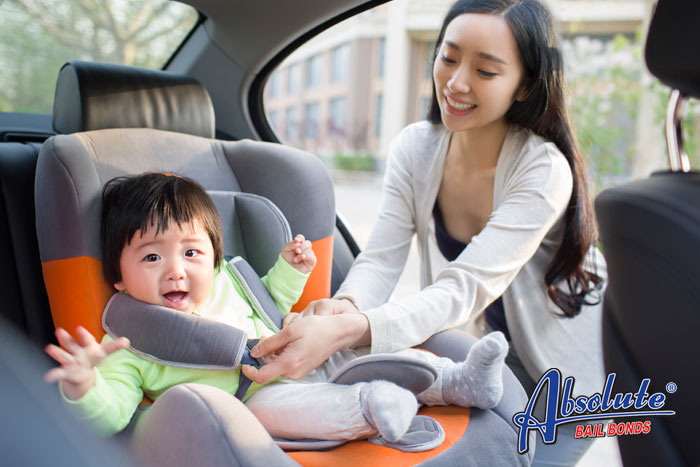
Is a Public Defender the Right Choice for You?
One of the great things about the way our justice system is set up is that everyone is entitled to legal representation. That means that no matter what your financial situation is, you don’t have to worry about navigating the criminal charges that have been filed against you by yourself. If you can afford a private criminal lawyer, fantastic. If you can’t afford the legal bills, the court will appoint a public defender to handle your case.
There are several reasons why you should take advantage of the public defender.
Public Defenders are Fully Trained Lawyers
Some people believe that they should avoid public defenders because they assume that since public defenders are court-appointed they must not be real lawyers. That’s not the case at all. The truth is that public defenders are highly trained attorneys who not only attended law school but who also successfully passed the state’s bar exam.
Unlike private criminal defense attorneys, public defenders don’t have the ability to cherry-pick their cases. They are required to take any case the court assigns to them. This means that public defenders get a great deal of experience handling an assortment of cases and charges. In many respects, this makes them more versatile and able to handle the unique details of your case.
Public Defenders Have a Solid Working Relationship With the Judges
Public defenders work with the local judges and prosecutors every single working day. They understand the personal preferences of the other side in a manner that private lawyers don’t. They know when it’s best to approach a judge, how to word things in a way that makes both the prosecutor and the judge more likely to accept a plea bargain, and are often more comfortable speaking to the judge and prosecutor than a private attorney is. They can use this knowledge to help you get the best possible deal.
Public Defenders Often Excel in Niche Areas of the Law
Public defenders, especially the ones who work in larger cities where there is a larger pool of public defenders, often settle into one or two niches of criminal defense, such as auto theft or domestic violence. This sometimes gives them an edge since they are always up to date on changes in the law, the little things that can really impact a case, and similar court cases that they can use to help lessen the charges you’re facing.
Public Defenders are Masters at Recognizing a Great Plea Deal
The simple truth is that if your case is going before a jury, you will probably be better off with a private criminal defense attorney, but if your main concern is getting the best possible plea deal, a public defender is a great option. Public defenders have seen enough cases just like yours that they have developed a knack for identifying a great plea deal and knowing when you should hold out for a different option.
They’re Affordable
A private defense attorney is expensive. If your finances are such that you are eligible for a public defender, it is far better to accept that as opposed to trying to handle the case all on your own.
Have you ever been represented by a public defender? Was your experience positive or do you wish you’d gone with a different option?

The Smartest Way to Handle a Big Lotto Win
With the Powerball jackpot soaring to over a billion dollars, people are stocking up on tickets. Even people who have never played the lotto before are purchasing a ticket and daydreaming about what they will do if they strike it big.
Since there is always a chance that you could win, dedicating a few minutes to learning what you should do if you happen to have the winning numbers is a good idea.
Sit on the News
The best thing you can do if you find out that you’re holding the winning numbers is to put your lotto tickets in a really safe place, like a safe deposit box, and sit on the news for a while. Don’t tell your family, don’t go directly to the state lotto office, and don’t make any huge purchases. Give yourself some time to come to terms with what has just happened and to think about how this will change your life.
It’s also a good idea to spend some time thinking about what major life changes you want to make and what you want to remain the same.
Seek Financial and Legal Assistance
Before you contact the lottery office, it’s a good idea to connect with both a legal advisor and a good lawyer who has a solid financial background. Both of these professionals will help you explore all of your options so that you can best decide how to handle your lotto winnings.
While you’re working with your financial advisor, it’s a good idea to have them consolidate your debts so that the first thing you do with your lotto winnings is paid things off. Knowing that all of your outstanding debts are handled allows you to sit back and enjoy your winnings.
Have a Plan in Place to Deal With Loved Ones
It’s possible that learning about your stroke of good luck will bring out a side of your loved ones that you’ve never seen before. Some will be genuinely happy for you. Some will be jealous. Some will believe that you are now the perfect person to hit up for money.
Before letting your loved ones know of your windfall, sit down and decide how you want to handle financial gifts and loans. Not only should you determine who will benefit from your lotto win, but you should also have an explanation ready for when you find yourself in a position of having to tell someone no, you won’t help them out.
Look To the Future
One of the mistakes that some lottery winners make is assuming that the money will be around forever. They go on a spending spree and drastically change their lives only to find out that the money spends faster than they thought, especially when tax season rolls around.
Before you start spending your lottery winnings, you should think about how much you need to add to your retirement fund, how you’ll pay your way as you get older, and potentially have to deal with health problems and other expenses that could crop up. The more of your winnings that you can set aside for your future, the better.
Explore Tax Deductions
Taxes will eat into a large chunk of your winnings. And they will continue to do so. Sit down with your financial advisor and learn about the different things you can do to minimize the amount of taxes you have to pay. Some choices you can consider include charitable donations, and maxing out your 401K.
Once you’re satisfied that you have thought through everything, have set up a good financial plan, and are fully prepared for the different ways the winnings will change your life, it’s time to contact the nearest lotto office and start the process of collecting your lotto winnings.

What to Do When You’ve Been Involved in a Car Accident
Car accidents happen, and even when you do everything in your power to drive defensively and avoid a collision, there could be a time when despite your best efforts you find yourself involved in an accident which is why now is the best time to learn the proper way to respond.
Secure Your Car
The first thing you need to do is to make sure your car is secure. In this case, it means shutting off the engine and getting out of the car as quickly as possible. While car accidents rarely cause fires, there’s always a chance that a random spark could ignite some gasoline. Shutting off the engine is the best way to reduce the risk of a post-accident car fire.
Even if you’re too severely injured to leave the car, try to turn your vehicle off.
Perform a Wellness Check
Take a quick moment to make sure that neither you nor any of your passengers are injured. Sorting out the details of the accident is important, but not nearly as important as making sure everyone is in one piece and not in immediate need of medical attention.
Call 911
Rather than trying to reach the police directly, you should call 911. The dispatcher will send the nearest police officer to the scene as well as the EMTs if you say that someone sustained injuries. Don’t worry that more than one person has contacted 911. If there are multiple calls about reporting the same accident, the dispatcher will deal with the issue.
Try to stay calm and keep your voice understandable while you’re on the phone with the 911 dispatcher. The information they need is how many vehicles were involved in the accident if there are any apparent injuries and the accident location. The calmer you remain, the easier it will be for the dispatcher to do their job properly and to get help to you as quickly as possible.
Create a Record of the Accident
It’s not a bad idea to create a record of the accident. Yes, the police will create a report, but having your own record adds more credibility to your version of the events when you file your insurance report. More importantly, creating your own record of the incident also helps cement details surrounding the accident into your memory, which makes it easier to answer any questions the police or insurance company will have.
File a Claim
Once you are satisfied that you’re safe, you need to let the insurance company know what happened. They will advise you on the best way to proceed.

Driving Drunk On Halloween in California
It’s Halloween which means Halloween parties. The high volume of parties means that the police will be out and they will be specifically looking for drivers who are under the influence and behind the wheel. If you are caught driving drunk on Halloween, the consequences will be severe.
Getting pulled over for drunk driving on Halloween in California isn’t the same as being pulled over for speeding. You won’t be let off with a warning. You won’t be issued a simple citation. If the officer suspects you were drinking, the first thing they will do is a breathalyzer test. This is a humbling experience. Don’t assume that even though you’re only close the legal limit (0.08% BAC) that you’ll be free to go. If you’re close, the officer will arrange to have another test done because it can take a little while for the alcohol to really hit your system.
The second thing that will happen is your arrested. While the Halloween party you just left was likely fun spooky, jail is spooky for real. After answering a series of questions, you’ll be fingerprinted and photographed before being put in a jail cell. Don’t assume you can skip any step. In California, you won’t be released to your family until you’ve sobered up. Depending on how drunk you were when you were pulled over and how recently you had your last drink, you could be in the cell for several hours.
The horror doesn’t end after Halloween. Once you’ve sobered up, you’ll realize just how much your life is about to change. Getting arrested was simply the first step. When you decide to drive drunk on Halloween in California, you’ll be charged with a misdemeanor, which will be on your permanent police file.
If your drunk driving on Halloween is the first time you’ve ever been convicted of drunk driving, the maximum amount of time you could be sentenced to jail is six months, and that is only part of what the sentence could be. The judge can also order you to pay a fine of $390-$1,000 dollars (plus additional court costs). You can also have your driving privileges revoked for at as long as a one year.
Avoiding a charge of drunk driving on Halloween in California isn’t difficult. You can either make sure you have a designated driver (or arrange for a ride share/taxi) or you can celebrate the holiday without drinking.
Stay safe and make smart choices this Halloween!

What Happens When You’ve Been Arrested: The Booking Process
It doesn’t matter if you’ve been caught shoplifting, where driving while intoxicated, or have been arrested because evidence suggests that you’ve committed a crime, the entire arrest process starts with you being booked.
The reason for being booked is to create a formal record of your arrest. It’s called booking, because back in the day when jails didn’t have computers, the booking officer entered everything into the big book of the jail’s records and the phrase has stuck, even though everything is currently entered into a computer database.
The amount of time it takes you to be formally booked really depends on how busy the jail is. If it’s a slow day, you could be booked and processed in less than an hour, but if it’s a busy night, it could take hours to complete. If it is a busy night, it’s in your best interest to stay calm and not complain. Getting agitated and rude during the booking process not only looks bad in terms of your case but can also result in additional charges if you get violent and start to rant and rage.
There are specific steps that the booking officer goes through while adding your record to the computer.
Collecting Your Information
One of the first things the booking officer will want to know is your full name, your address, and if you have any identifying features. This is not a good time for you to be sarcastic. Answer their questions quickly, honestly, and calmly. During this stage, you will also be asked to provide emergency contact information.
Taking Your Mug Shot
The next step will likely involve having your mug shot taken. Police rely on mug shorts of a variety of reasons, including:
The booking officer will explain how the mug shot process works. This should only take a few minutes to complete.
Removing Your Personal Items
You can’t bring personal items like belts, wallets, cell phones, and jewelry into the cell when you’re arrested. The booking officer will take these things and log them into their records. When you’re released on bail, you’ll get them back. As hard as it is to pass your personal possessions over, remember that the officer is only doing their job and getting angry will only make the entire situation worse. This is frequently the stage that can take the longest amount of time, especially if you had a great deal on your when you were arrested.
In addition to remaining calm and compliant during the booking process, you also need to not say anything that could potentially be used against you in your case while you’re being booked. The best policy is to not speak unless you’re being asked a direct question that relates specifically to the booking process.

Driving Without Auto Insurance in California
It’s expected that if you’re going to own and operate a vehicle in California, it’s properly insured. The amount of insurance you have that covers your own car is usually left up to you, but the state requires that you at least carry limited liability insurance so anyone else who is involved in the accident is protected.
The issue of car insurance in California is addressed in Vehicle Code Section 16029.
One of the interesting things about California is that while most drivers have auto insurance, other forms of financial responsibility that are legally acceptable while operating a vehicle in California include:
- A self-insurance certificate that’s issued by the DMV
- A surety bond for $35,000
- Proof of a cash deposit with the DMV of $35,000
If you’re pulled over and can’t present the traffic officer with one of these things, you are driving without insurance.
The first time you’re caught driving without insurance, you’ll receive a citation and have to pay a $100 fine. Additional fees connected to the citation mean your out-of-pocket expenses will be $450, and that’s just for not having insurance. It’s likely that whatever prompted the officer to pull you over, such as running a stop sign or speeding, will also result in a second costly infraction.
The second time you’re caught driving without insurance, the infraction increase to $200-$500, and in some cases, the additional total fees and penalty assessments can add up to as much as $2,500.
The ticket and massive penalties probably won’t be your only problem. Since an uninsured vehicle can’t operate in California, it’s highly likely that the police will have your car impounded. The only way you’ll get it back is if you pay the towing bill and impound fees. Unless you’re planning on having the vehicle towed back to your house, the impound lot will request to see your proof of insurance before the release of your vehicle.
Getting a ticket for not having auto insurance when you’re pulled over is bad, but it’s nothing compared to what happens if you’re in a car accident when you don’t have insurance. Not only will you be issued an expensive ticket, but it’s also highly likely that you’ll be named the defendant of a civil suit. Since you didn’t have any insurance at the time of the accident, if you lose the civil case, you’ll be responsible for paying the entire settlement.
Yes, car insurance is expensive and it can be hard to fit into the monthly budget, but considering the possible consequences, it’s something you should have if you’re driving.

Consequences of Shoplifting in California
A surprising number of people have shoplifted during their lifetime. It’s especially common with young children who will often take something from candy racks. Teenagers will also sometimes shoplift because they were dared by their friends or because they are simply looking for a way to rebel.
The problem with shoplifting is that it is against the law. If you’re caught, you face some serious legal consequences.
Shoplifting occurs when you remove something from a store without paying for it. There are times when this happens by accident, such as a pair of earrings getting overlooked by a cashier or a small item getting forgotten in a cart because you were distracted by a grumpy toddler, but most of the time, shoplifting is done deliberately.
In most accidental cases, the store management will review any security tapes they have or talk to the cashier who waited on you. If it’s clear that the item was accidentally taken from the shop, they’ll likely ask you to pay for it and let you go.
However, if they discover that the shoplifting was intentional, they’ll likely file criminal charges.
If you’re arrested as a result of your shoplifting, you’ll be charged with theft. The value of the merchandise you removed from the store determines if you’re charged with petty theft or grand theft. If the total value of merchandise taken during a single shoplifting episode is less than $950 you’ll be charged with petty theft which is a misdemeanor. If you took more than $950 worth of stuff, you’re facing felony grand theft charges.
With both petty and grand theft, you could face possible jail time, though the amount of time you spend incarcerated and the location varies. With a petty theft conviction, the maximum sentence is 6 months in a county jail. The maximum jail time associated with a grand theft conviction is a year.
It isn’t unusual for a judge to look at the circumstances surrounding the shoplifting incident and decide that community service, a fine, restitution, and probation are sufficient sentences.
One of the big things the judge will look at while they are trying to settle on an appropriate sentence is your criminal history. They will be far more willing to entertain a mild sentence that includes nothing more than a small fine and community service if this is your first brush with the law. If you already have a criminal record, especially that record includes other theft charges, they may decide to hit you with the maximum sentence.

California’s Car Seat Laws
Every parent who has an infant knows that they’re supposed to have a car seat installed in their vehicle. They even know that it’s state law. What some parents don’t know is how important the car seat is and the consequences of having a car seat that doesn’t meet current safety standards, that isn’t properly installed, or that isn’t properly fitted to their child.
According to Car Buyers Guide, “in a recent study, the RSA inspected 5000 child seat installations from the public and found that over 4000 of them needed adjustments of some kind to ensure optimum safety.”
California’s lawmakers used Vehicle Code 27360 VC to address the issue of car seats. The law clearly states that:
- Children under the age of 2 must be properly restrained in a rear-facing car seat
- Children under the age of 8 must ride in the back seat and be safely restrained in an age/size appropriate safety seat.
- The child must be secured into the safety car seat in a manner that complies with both height and weight limits that are to be specified by the car seat manufacturer.
According to the Mayo Clinic, the most common mistakes parents make when it comes to the car seats they’re using include:
- Purchasing a used car seat without making sure it isn’t more than 6 years old, hasn’t been involved in an accident, hasn’t been subject to a recall, and has no indications of damage or structural problems that could endanger a child.
- Failing to properly install the car seat
- Failing to properly restrain the child before driving
- Reclining the car seat so that the child isn’t at the correct and most safe angle
- Switching their child to a forward-facing car seat before the child is ready
The first time a driver is ticketed for not following California’s car seat laws, they’ll be issued a ticket. $100 of that ticket pertains to not having the child properly restrained. Court fees and additional charges will also be added to the ticket. After that initial ticket, the fine connected to not properly restraining the child is $250.
In some cases, the ticket for not having a child properly restrained to a child seat is the least of the driver’s worries. In many situations, the driver will also face charges of negligence and child endangerment.
It doesn’t matter how big a rush you are in, always take the time to make sure your child is safe before you hit the road.

Proposition 57
Traditionally, whenever a law/proposition is proposed that involves crime, it’s a move to actually create stricter laws/penalties. This is especially true when it comes to violent crimes and repeat offenders. In many cases, when you research the reasoning behind the proposal, you’ll discover that crime rates have been steadily increasing and the voting population is starting to feel insecure and has been applying pressure to the officials they voted into office.
Proposition 57 is a result of people looking at the current state of California’s criminal justice system and questioning if using longer forms of incarceration is really the best way to encourage a person to change their ways. Many California residents have also started wondering if maybe there isn’t a better way to spend the millions of tax dollars that are currently used to house/feed/clothe criminals. Many wonder if spending that money on rehabilitation/education programs might be a better solution.
While many lawmakers were skeptical about the future of Proposition 57, after all, who ever heard of the voting public liking laws that were viewed as being soft on crime, in November 2016, California voters passed the proposition.
The interesting thing about Proposition 57 is that it placed the issue of rehabilitation squarely in the hands of convicted criminals. What the proposition did was created an incentive program for inmates that allowed them to be responsible for their own rehabilitation while also increasing the odds of them being granted parole.
Proposition 57 created a credit program. Inmates who were well-behaved and who also took part in an in-prison rehabilitation/education program received a credit.
The different credits created by Proposition 57 include:
- Good Conduct Credits
- Educational Merit Credits
- Milestone Completion Credits
- Rehabilitative Achievement Credits
The great thing about these credits is that anyone who has been convicted of a non-violent crime has the opportunity to really prove that they are not considered a violent risk to the community and should be considered for parole. The parole board looks at the credits an inmate has earned and their criminal history and is more inclined to grant them early release.
Recently the California Supreme Court heard a case that prompted them to rule that Proposition 57 did not apply to incarcerated criminals who have a history of violent crimes. “In reaching this conclusion, we find the constitutional text (of the ballot initiative) is ambiguous,” Chief Justice Tani Cantil-Sakauye wrote on behalf of the court. The ruling made it impossible for inmates who were serving sentences for a combination of violent and nonviolent crimes to use the credit program to qualify for early parole.


